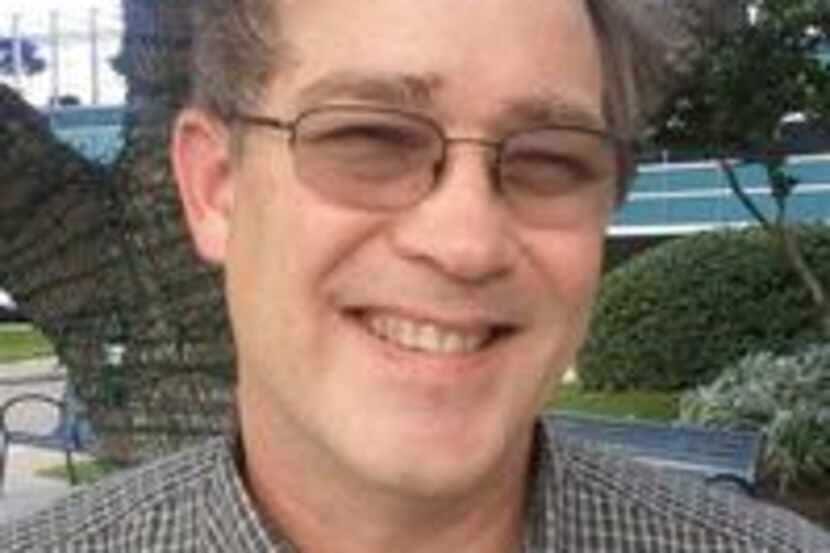
The death penalty commentariat is a small world, so it shouldn’t have surprised me that some of its most prominent people would have found my relatively small footprint. Sometimes that means getting quoted by Radley Balko in an Essay of the Year contender or shouted out by Earwitness host Beth Shelburne. And sometimes it’s Dudley Sharp.
You wouldn’t be blamed for never having heard of Sharp, but he’s punched well above his weight within the death penalty debate. Per his CV, he’s given interviews to nearly every major news network, testified before five state legislatures on death penalty issues, and lectured at the State Department. Given this pedigree, I’m somewhat flattered that he engaged with my recent essay on the differences between capital punishment and assisted suicide with a “link” (the title pasted into a Twitter reply) to his own work, “Lethal Injection & Nitrogen Hypoxia: Controversies Resolved.“
Or at least I would be if it weren’t so shockingly dishonest.
A (Necessarily) Short Biography of Dudley Sharp
Sharp received a BA in philosophy from Tulane University in 1978. After a two-decade career in advocacy for criminal justice reform (summarized in two sentences on his website), he converted from death penalty opposition to zealous advocacy.
Thus ends the list of Sharp’s credentials on the “partial CV“ from his website.
Don’t get me wrong: there’s nothing about the work in this space that requires a highfalutin education; other than my medical certifications, I only have a BA myself. Sharp, however, approaches this lack of education without a trace of epistemic humility. He’s an expert in whatever capital punishment needs him to be1, apparently including my line of work.
Sharp, who has never mixed or administered a chemical, nonetheless confidently declares that “if necessary, non medical [sic] personnel can be properly trained to mix and administer the chemicals involved in lethal injection.” The repeated IV failures that provably derail executions are, to him, identical to legitimate medicine often needing “multiple needle pricks,“ though lethal injection often and vastly exceeds the pretty common standard of three or fewer attempts for access in the field, and gross errors like puncturing someone's bladder or attempting a central line with a peripheral catheter are grounds for license revocation in “standard operating procedure.“ Sharp presumably relies on shallow analysis like this (he never discloses his methodology) to conclude that the rate of botched lethal injections is actually only 1%.
The Bulk of Sharp’s Commentary on Lethal Injection Is Outdated
Sharp’s last major update was in 2007; he inserted red-letter accusations of “ethical and factual lapses“ in January of this year but has left the piece otherwise unchanged. His main thrust falls along contemporaneous lines, arguing that sodium thiopental adequately sedates lethal injection subjects, as demonstrated by the autopsy of a single subject. He cites a letter to Lancet from anesthesiologist Mark Heath2 refuting a larger autopsy review showing frequent inadequate serum thiopental levels; Heath (correctly) argues that the larger study didn’t account for postmortem thiopental absorption into tissue. I could quibble about the significance of a single case study, but Sharp’s 2007 analysis shows uncharacteristic caution and deference to actual experts.
The bigger problem is that the pharmacokinetics of thiopental mean nothing to today’s lethal injection debate. Whatever the merits of the “classic“ cocktail (obvious signs of problems don’t meet Sharp’s selectively applied standard of proof), states abandoned it in 2011 after drugmaker Hospira stopped selling thiopental in the US. Sharp links to a discussion of Hospira’s decision but frames it merely as a rebuttal to Zivot’s “idiocy“ on the protocol-shaping topic. Given bold-text-and-bolder-language denunciations of others’ supposed ethical and factual failings, and the fact that interest in botched lethal injections hit critical mass with the 2014 execution of Clayton Lockett, it’s strange that he doesn’t seem to think readers deserve to know this.3
Sharp accuses his opponents of ignorance or dishonesty on nitrogen hypoxia, too, but he doesn’t say anything I didn’t cover elsewhere and didn’t update to include its use on Kenneth Smith. (Perhaps Alabama’s stunning mendacity proved too much even for him.)
The Beam in Dudley Sharp’s Eye
Sharp’s acknowledgment of forced protocol changes, however limited, is also useful here in that it puts his modus operandi on full display: charging opponents with an ethical lapse for anything less than pinpoint accuracy, while conveniently never mentioning context that undermines his point.
Sharp “rebuts“ an interview Zivot gave in December 2013 in part by claiming he was “unable to find“ corroboration for Zivot’s claim of propofol and midazolam shortages, circling back 10 years later to note that Zivot had not responded to requests for the same. I, however, pretty easily found Pennsylvania’s EMS authority warning about a midazolam shortage in that year, with propofol in short supply until July 2013. The US lacked sufficient midazolam for a cumulative five years (58 months for propofol) in a 14-year period from 2001 to 2014. Even if neither drug was in shortage at the exact moment, the interview speaks accurately to what was a chronic problem while states were seeking, purchasing, and using drugs in the death chamber.
In citing Heath’s Lancet letter, Sharp also fails to inform the reader that the authors confirmed four different “technical issues” with lethal injection, all of which Sharp claims are easily handled by “criminal justice professionals.” Sharp also never tells the reader that Heath testified he’d never seen a reliably humane lethal injection protocol. The involvement of Oklahoma pathologist Jay Chapman is cited to rebut the assertion that healthcare professionals were not involved in lethal injection protocol design, without mentioning that Chapman himself doubted his credentials. And while Sharp is clearly well-acquainted with Zivot’s advocacy, he offers no comment on Zivot’s 2020 pulmonary edema-based study; his “rebuttal“ of the concept of botched executions only mentions Zivot to say that his criticisms of Austin Sarat’s review—which uses a categorically different methodology—apply to Zivot and “many others.“
He’s Wrong, But He’s in Line
The most frustrating thing about Sharp isn’t that his analysis is this shallow and intellectually lazy; it’s that pro-inhumanity commentary really doesn’t get much better—and it doesn’t matter. The controlling opinion in lethal injection litigation, Glossip v. Gross, freely admits it took the word of Drugs.com and a shipping label over 14 physicians and pharmacists. When even practitioners of lethal injection question its pace, the response is that they're not “man enough” for it. The Carceral State Fan Club doesn’t want the smartest people’s best-informed opinions, it wants someone in a suit jacket (or white coat) wielding a rubber stamp. Whatever his other qualifications, Sharp will happily fit that bill.
